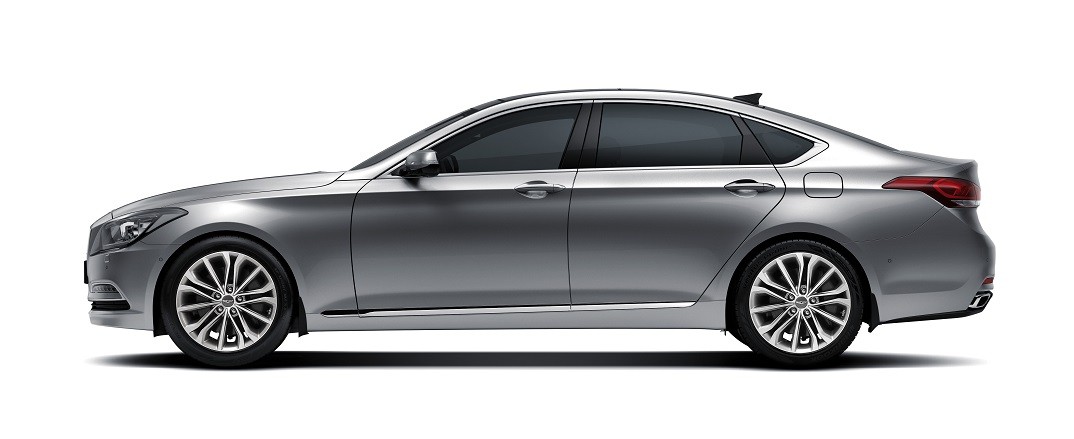In 2014, the Hyundai Motor Group (which includes Kia) sold more than eight million cars across the globe, a number surpassed only by Toyota, Volkswagen, General Motors and Nissan-Renault. In the recent past, this writer has been busy swiping a smartphone made by LG, consumed more kimchi than sushi, and sat through an entire season of Spy (as an unwilling bystander) because the missus likes watching actors whose complexions appear far more supple than their female counterparts’.
That Korea produces high quality exports is no longer in question. Case in point being the Hyundai Genesis – a dashing, rear-wheel-drive flagship sedan that supposedly has the BMW 5-Series and Mercedes-Benz E-Class in its sights. But before everyone gets their guksu tangled in a bunch, the prospects of challenging the Europeans in this space is a bit like pitting Jeonbuk Hyundai Motors against FC Bayern Munich. Pedigree counts when you play in the upper stratosphere, especially in Asian societies where established luxury brands are revered.
One could argue that Lexus, Infiniti, Acura and even Hyundai’s premium models are holding their own in the US premium segment, but American car buyers are as brand agnostic as they come when choosing their cars. That, plus the fact that the Genesis undercuts the 5-Series/E-Class handsomely in price and specs. In Malaysia, the fully-imported Genesis 3.8L retails for an eye-popping RM389,000. Would you choose the Hyundai over a BMW 528i M-Sport (RM417,800), the 520d Sport (RM354,800), a Mercedes-Benz E250 (RM403,888) or the E300 Diesel Hybrid at a “bargain” price of RM338,888?
 So while we love to see an underdog upstage the favourites, the Genesis will most likely be a slow-selling halo model in Malaysia, a car that is able to showcase just how far Hyundai has come, something which we do not doubt after running our fingers over its faultless paint job and resting our bottoms on its impeccable Nappa leather seats during the launch. Every touch point exudes quality. If there’s a Korean equivalent of a Lexus in terms of tactility, this would be it.
So while we love to see an underdog upstage the favourites, the Genesis will most likely be a slow-selling halo model in Malaysia, a car that is able to showcase just how far Hyundai has come, something which we do not doubt after running our fingers over its faultless paint job and resting our bottoms on its impeccable Nappa leather seats during the launch. Every touch point exudes quality. If there’s a Korean equivalent of a Lexus in terms of tactility, this would be it.
Powered by a direct injection 3.8-litre V6, the Genesis won’t get many nods from CFOs as a company car purchase, but it’ll go plenty fast with 315ps and 397Nm at its disposal (under seven seconds for the 0-100km/h benchmark), and look after its occupants well with a raft of safety features and creature comforts; nine airbags, heads-up display, blind spot warning, active cruise control, branded 14-speaker audio system, panoramic sunroof, even a carbon dioxide sensor in the cabin to ensure the driver doesn’t get drowsy. No, it won’t know how to serve macadamia nuts in a bowl, in case you’re wondering.
Needless to say, it’ll be interesting to see how the Genesis fares behind the wheel against the Germans. While not highlighted during the launch, the involvement of Lotus in tuning the Genesis’ ride and handling is intriguing to say the least, which included testing at the famed Nurburgring. Whether Mr. Blatter had a hand or not, South Korea did achieve the unthinkable by ousting Spain in the quarterfinals of the 2002 World Cup. So, this is a space that’s definitely worth watching.
Hosting the launch of the Hyundai Genesis was Hyundai Sime Darby’s brand new flagship 3S GDSI (Global Dealership Space Identity) Centre located at Jalan Klang Lama, Kuala Lumpur – the first of its kind in South East Asia. Measuring 38,000 sq. ft and costing RM9.5 million to construct, the three-storey centre has 20 service bays and multiple lounges to cater to its customers, including a VVIP lounge for Leader Card members (buying a Genesis would land you one).








